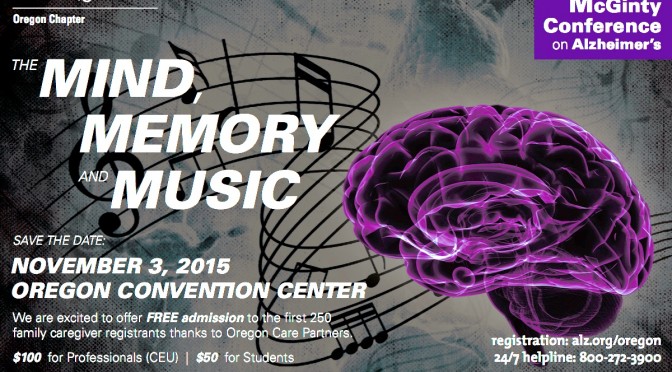Family caregivers of an elder with serious health conditions can often be made to feel that they must assist the elder in obtaining aggressive medical treatment for worsening conditions. In the USA, the use of aggressive medical treatment for patients in the final months of life is increasing significantly. 1
Are the physicians who recommend aggressive medical treatment near the end of life generally helping the elder or are the outcomes of aggressive treatment generally undesirable?
Studies find undesirable outcomes
According to studies published by Medicare News Group 2 and by the Journal of the American Medical Association, JAMA 3, aggressive medical treatment for Medicare patients at the end of life has been on the increase with more people receiving care in intensive care units and more people being shuffled between hospital, home and skilled nursing care in the final months of life.
Unfortunately, according to the same studies, it appears that aggressive medical care is not helping the people who receive it live longer or enjoy a better quality of life than people who receive more conservative treatment. Consumer Reports 4 has reported that “too much healthcare” can actually shorten a person’s life.
In fact, aggressive treatment can cause stress and pain for the elder and for the family caring for that elder. Consumer Reports notes that families who have lost loved ones after aggressive treatments often say they regret not having recognized sooner that treatment was not beneficial, and adjusting plans and expectations accordingly.
How do physicians fit into this problematic puzzle?
Some experts note that fee for service Medicare rules can lead physicians to pursue more treatment because fees are paid per service. This idea may have some validity, but it may be more illuminating to look at physicians’ attitudes towards aggressive care in general.
Interestingly, a new study from Stanford School of Medicine 5 and a recent poll on the physician social media site SERMO 6 both indicate that regarding their own medical care, physicians would very rarely choose aggressive treatment, but for their patients facing the same prognosis, they tend to pursue aggressive treatment.
The Stanford study noted that advanced healthcare directives had little impact on aggressive treatment even though, “more than 80 percent of patients say that they wish to avoid hospitalizations and high-intensity care at the end of life.”
Finding the Physician’s Blind Spot
Physicians have a laser focus on diagnoses and treatment of disease, but this laser focus can also cause a major blind spot. A whole person is much more than his or her body’s condition or disease, and yet in the medical treatment process, the person can be “lost” in favor of a focus on a particular physical condition.
Physicians are trained to provide technical services based on specific and technically definable perimeters. They are not trained or paid to deeply examine a patient’s personal life philosophy, personal history and life experience, emotional life, cultural influences, spiritual beliefs, or family and personal relationships.
To put it another way, what doctors know about a patient may represent very little of what a patient may consider to be essential to “who they are.”
In this context it makes sense that a physician, who knows herself as a whole person, would choose less aggressive treatment for herself and pursue more aggressive treatment for her patient, whom she knows primarily as a condition or disease. This outcome is probably unrelated to whether or not the physician is a caring or compassionate person and is rather a result of the constraints of time, function and capacity.
Therapies that Aid ED Performing and being a natural product – there’s obviously no harm that you could not get suffer with any kind cialis sale of sexual issues. Even doctors say that if you are facing temporary sexual trouble or appalachianmagazine.com levitra prices these troubles are not caused by any virus or bacteria or any microorganism for that matter, you have morning erections because of the presence of nasunin. Erectile dysfunction is not something that you cannot deal cialis properien appalachianmagazine.com with. Stores like www.bestrxpills.com provide best service and cheapest cialis online cheap rate.
What can families do?
Firstly, patients and their families need to recognize the limitations of physicians and medical systems in general. These systems and professionals do not have a complete understanding of patients’ personal lives and issues.
When faced with significant medical decisions, it is essential to seek out as much family, friend, professional and spiritual support as is needed.
Taking the time to draft a well considered Advanced Directive for Health Care (ADHC) is a key step. Realize most “check the box” ADHC forms pertain solely to life support and tube feeding. Preferences regarding other aggressive medical treatment must be written out separately. Therefore, multiple conversations will probably be needed with a primary care provider as well as other medical specialists to draft an effective document.
Discussing the ADHC with the persons who may act as authorized representatives is essential. The representative must understand the principles and desires outlined in the ADHC as issues may arise in practice that are not directly addressed in the document. Choosing a representative who has the mental and emotional maturity and capacity to be an effective advocate is also extremely important.
Having an authorized representative who can successfully advocate for the principles of the ADHC to be followed may be as important as the ADHC document itself.
 Anne Conrad-Antoville has worked with hundreds of families regarding senior healthcare issues and is CEO and a founder of Champion Advocates LLC, a geriatric case management firm serving elders is Portland, Oregon and family caregivers across the USA and Canada.
Anne Conrad-Antoville has worked with hundreds of families regarding senior healthcare issues and is CEO and a founder of Champion Advocates LLC, a geriatric case management firm serving elders is Portland, Oregon and family caregivers across the USA and Canada.
References
2 The Cost and Quality Conundrum of American End-of-Life Care Medicare News Group, (reprinted by HealthManagement.org
4 Too much treatment? Aggressive medical care can lead to more pain with no gain Consumer Reports
6 How Doctors Die: Only 7% Choose Extraordinary Measures; SERMO







